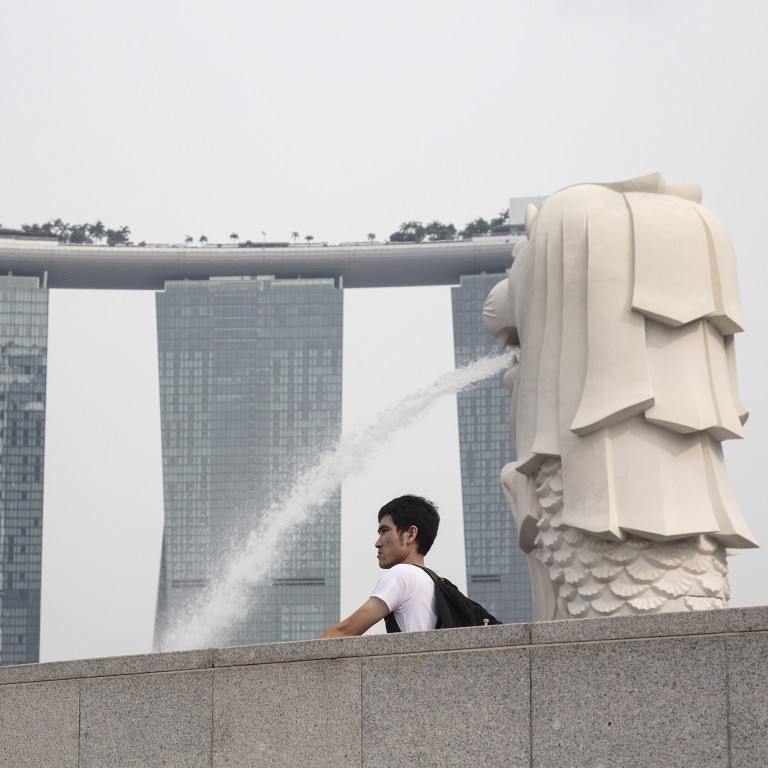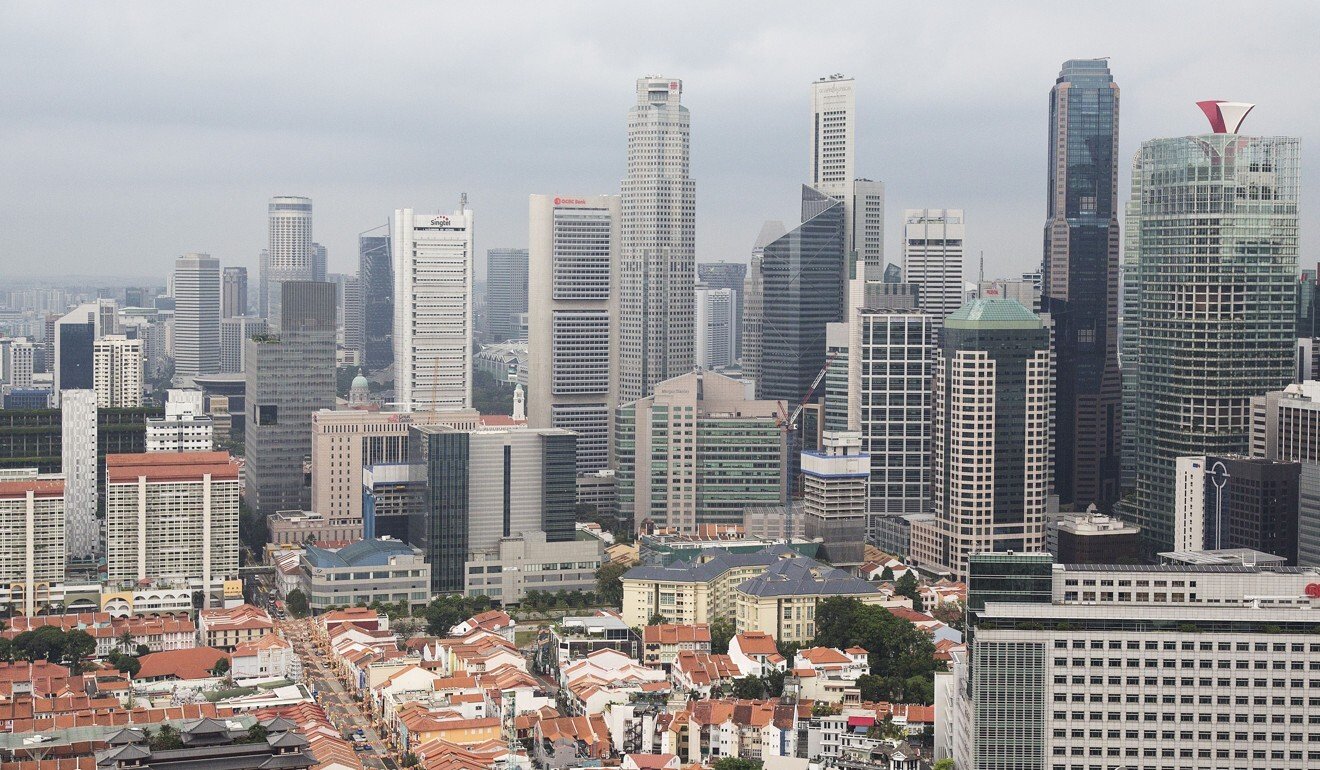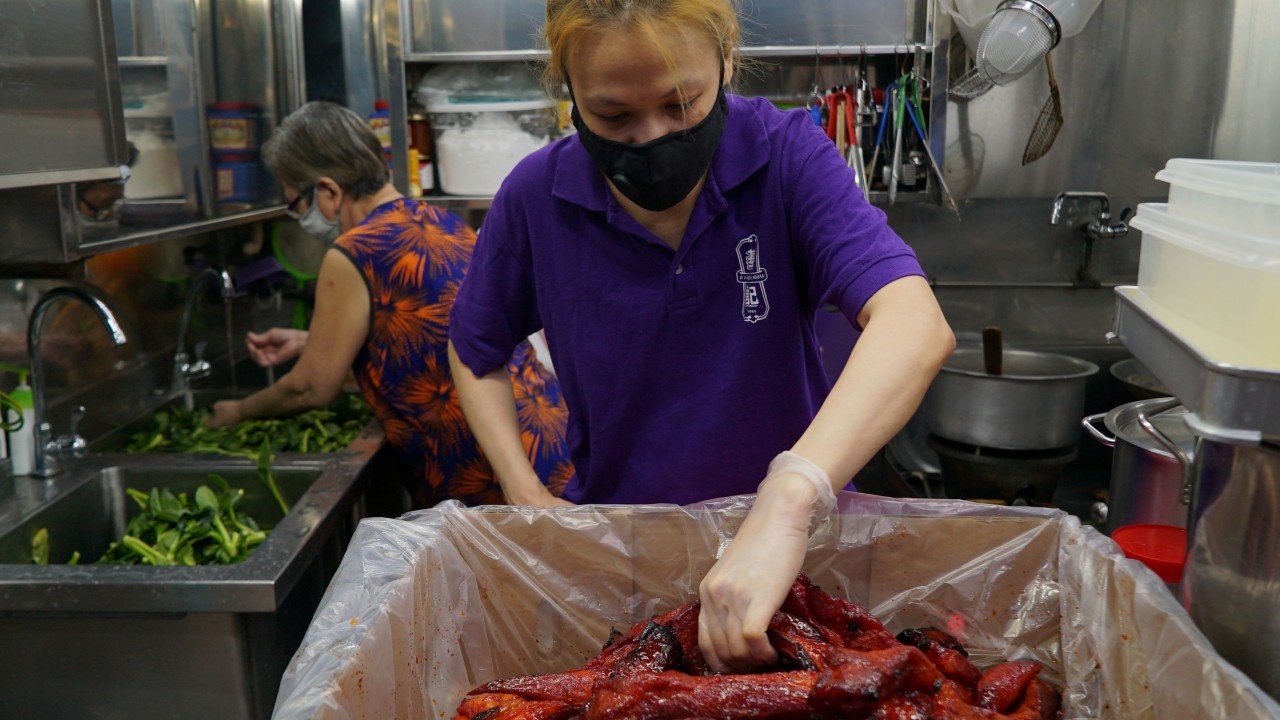
Stress levels in Singapore’s corporate bond market rising as coronavirus takes its toll
- Nearly US$12 billion worth of bonds are set to mature in a deepening recession from now through next year
- With the coronavirus leaving many businesses struggling just to stay afloat, retail bondholders could be at risk of losing their investments
It is not uncommon for investors to take up arms against a company that is unable to repay its debts.
The 8 per cent guaranteed bonds were supposed to mature on March 8. Hatten Land bondholders first pushed back the repayment date to June, before moving it to July, and now August. They have agreed to extend the maturity date of the bonds on a monthly basis until June 8 next year.
With at least S$16.1 billion (US$11.7 billion) worth of bonds set to mature in a deepening recession from now through next year, more financial distress and soured debt may be on the cards, market watchers say.
“A lot of these bonds are from sectors that just can’t pay, given today’s economic climate,” said Ashok Kumar, director of the law firm BlackOak, which specialises in corporate restructuring and insolvency.
“Right now, support measures from the government are helping to put a stall on the damage, but they will stop. And when that happens, come the last quarter of the year, or the first of next year, we will begin to see the extent of the carnage.”

MORE PAIN
The pain has already begun – perhaps tracing back to April last year, when water treatment firm Hyflux defaulted on the redemption of its S$400 million tranche of preference shares.
Ratings firm S&P Global Ratings had flagged in a report back then that the default could be the “first wagon in a train of financial distress cases” to follow.
As the global economy slowed, companies such as oil and gas player KrisEnergy – still reeling from the oil price crash between 2014 and 2016 – and hard-drive component maker MMI International also missed loan repayments.
Embattled shipping company Pacific International Lines, which is set to receive an interim bailout from Temasek-owned Heliconia Capital Management, said in May there were likely to be events of defaults under its financing agreements, including under the terms of a S$60 million bond due in November.
In July, the same month Hatten Land managed to defer its bond repayment for the third time, Hong Kong-listed Century Sunshine Group failed to redeem its S$101.75 million 7 per cent fixed rate notes. Citing Covid 19-related pressures, the ecological fertiliser firm said in a regulatory filing that it “did not have adequate cash” to do so. It has since been appointed “light touch” joint provisional liquidators to facilitate its debt restructuring process.
Ang Chung Yuh, fixed income manager of the Bondsupermart Team at iFAST Financial, said companies in sectors that had been directly affected by Covid-19 restrictions, such as retail, hospitality, and entertainment, face rising stress levels. Some names include Lippo Malls Indonesia Retail Trust, Heeton Holdings, and mm2 Asia.
Others include those with high financial leverage and low liquidity, such as Aspial Corporation – whose S$141.9 million 5.25 per cent notes will come due on August 28 – and those with high revenue concentration risks, he said. First Reit, for instance, is heavily reliant on its sponsor Lippo Karawaci for income support.
A tide of defaults is already rising across the broader Asian market. Global ratings agency Moody’s has reported that the default rate of Asian high-yield non-financial companies rose to 2.3 per cent at the end of March, from 1.1 per cent at the end of 2019. The figure is forecast to hit 6.4 per cent by the end of the year.
About S$6.4 billion worth of Singdollar bonds are due in the second half of 2020, excluding perpetual securities, according to Bloomberg. Some S$9.7 billion more will mature in 2021. Most of these corporate bonds are unrated, which means the issuers do not require a credit rating to tap the market.
At a time when businesses are struggling just to stay afloat, many retail bondholders could find themselves at risk of losing their investments. “In any default scenario, bondholders face the challenge of getting organised and getting properly represented so they even have a seat at the table during the debt restructuring process,” Ashok said.
“The two wild cards to a rising default toll are a vaccine, and the liquidity that is still sloshing around. If people are not realistic about values – as we seem to be seeing with the stock market – the bond market can go on as it is.”

02:13
‘Last-generation’ Singapore hawker fights to weather pandemic
COVID-19 SUPPORT
But Ang was sanguine about the number of defaults that would unfold in the Singapore bond market for the rest of the year.
“Among the names that we do track, most of them have the liquidity, asset base, and/or access to capital markets to meet near-term obligations,” he said. For example, shipping company Neptune Orient Lines’ parent company CMA CGM recently obtained a 1.05 billion euro (US$1.23 billion) loan that was 70 per cent guaranteed by the French government – a move that would provide the highly leveraged firm with sufficient liquidity to meet its bond obligations.
“Furthermore, we’ve observed that Singdollar issuers so far have mostly continued to enjoy funding support from banks, which will help them to refinance maturing bonds,” he said.
Ang said the absence of a spike in defaults in the Singapore bond market today was probably because the number of high-yield bonds – or junk bonds with weak credit quality – was already on the downtrend even before the pandemic.
This was because investors had been spooked by a string of high-profile insolvencies, particularly from the oil and gas fallout, while widening credit spreads had pushed high-yield Singdollar issuers to turn to bank funding instead of public debt.
As a result, most of the corporate bond issuances on the market today are of high grade with strong balance sheets, said Roy Wong, executive director of fund management company CP Global Asset Management. He said the Singapore government’s Covid-19 business support measures had played a big role in helping the bond market remain resilient as well.
Aaron Costello, regional head for Asia at global investment firm Cambridge Associates, said interventions by central banks globally have helped shore up credit markets as they were hit by the Covid-19 crisis.
“But given relatively low yields globally, investors [still] need to be very careful about chasing yield in credit … Understanding the health of corporate balance sheets will be critical, as weak, heavily leveraged companies may not survive.”

